
DECODE – combining AI with the human touch
Our experts are working alongside people with learning disabilities, carers and health professionals to develop health and social care coordination that is fit for purpose and suits the community’s needs.
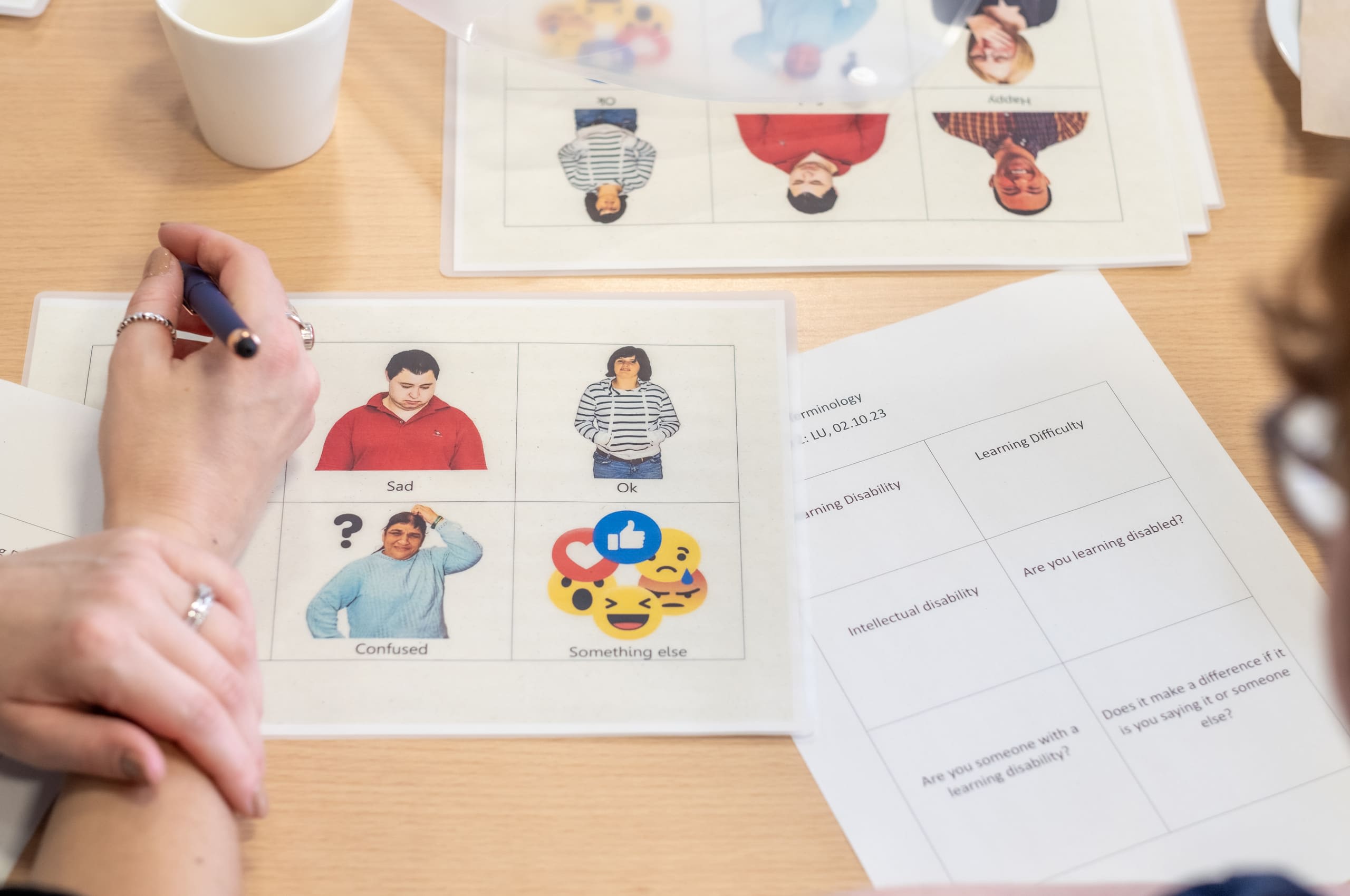
According to Mencap, there are more than 1.5 million people with a learning disability in the UK – just over 2% of the adult population.
Their physical and mental health doesn’t compare well with that of the general population. They are likely to struggle with more health conditions, their life expectancy is shorter, and about 38% of them die from an avoidable cause.
These health inequalities are exacerbated by several barriers that hinder their access to good-quality healthcare.
In a bid to improve access to support and care, a team of researchers – led by Loughborough’s Professor Thomas Jun with Dr Satheesh Gangadharan – is developing new ways to overcome these obstacles.

Project DECODE
Data-driven, machine learning aided stratification and management of multiple long-term conditions in adults with intellectual disabilities (DECODE)
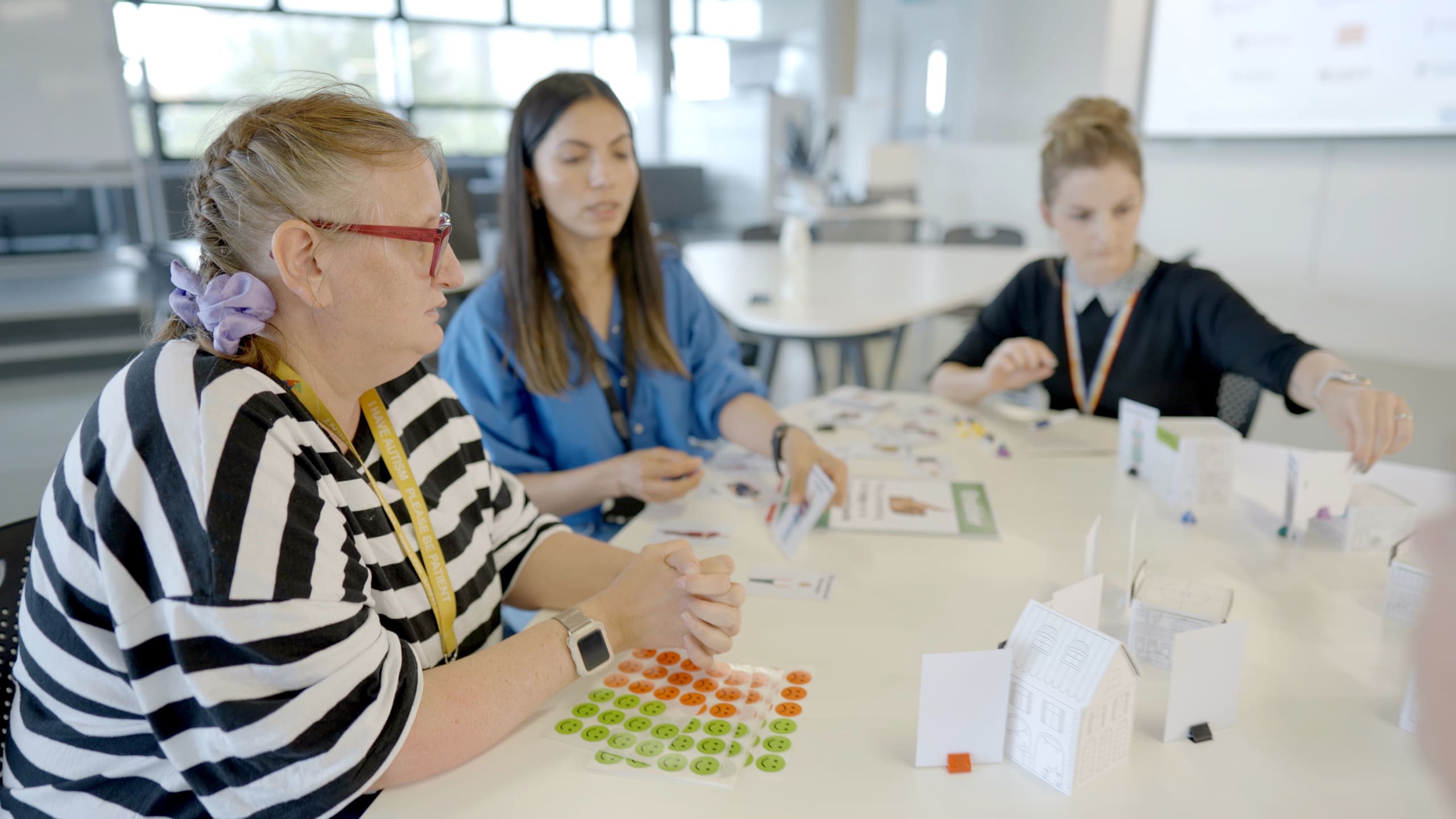
"We are very excited about DECODE. We will be able to demonstrate how AI can create safe, ethical and cost-effective improvements to the quality of life for thousands of people with learning disabilities."
Professor Thomas Jun
DECODE is exploring new approaches to the co-ordination of health and social care for multiple long-term conditions (MLTC) – like diabetes, heart disease and asthma – among adults with learning disabilities.
It is one of seven projects supported by the National Institute for Health and Care Research (NIHR) programme, Artificial Intelligence for Multiple Long-Term Conditions (AIM). DECODE launched in April 2022 and runs until March 2025.
Using pioneering AI techniques, the research team are developing a better understanding of the pattern and trajectories of MLTC that many people live with. This will help to guide change – leading to a more joined-up approach to care by service providers, health and social care organisations.
The multidisciplinary DECODE team comprises researchers and clinicians who are expert in learning disabilities, neuropsychiatry, epidemiology, health data science, machine learning, data visualisation, human factors, qualitative research, AI and ethics.
They are based at seven universities across the UK – Loughborough, Leicester, Kings College London, Swansea, Nottingham, De Montfort and Plymouth – alongside the Leicestershire NHS Partnership Trust. Also involved are a range of service providers, commissioners and policy makers.
Key to the project’s success are the PPIE (Patient and Public Involvement and Engagement) groups – including people with learning disabilities, their carers, and health and social care professionals. Their input is vital to shaping the project, reviewing the outcomes, and advising on participant engagement.
Helping people with learning disabilities have better healthcare

DECODING complex health needs
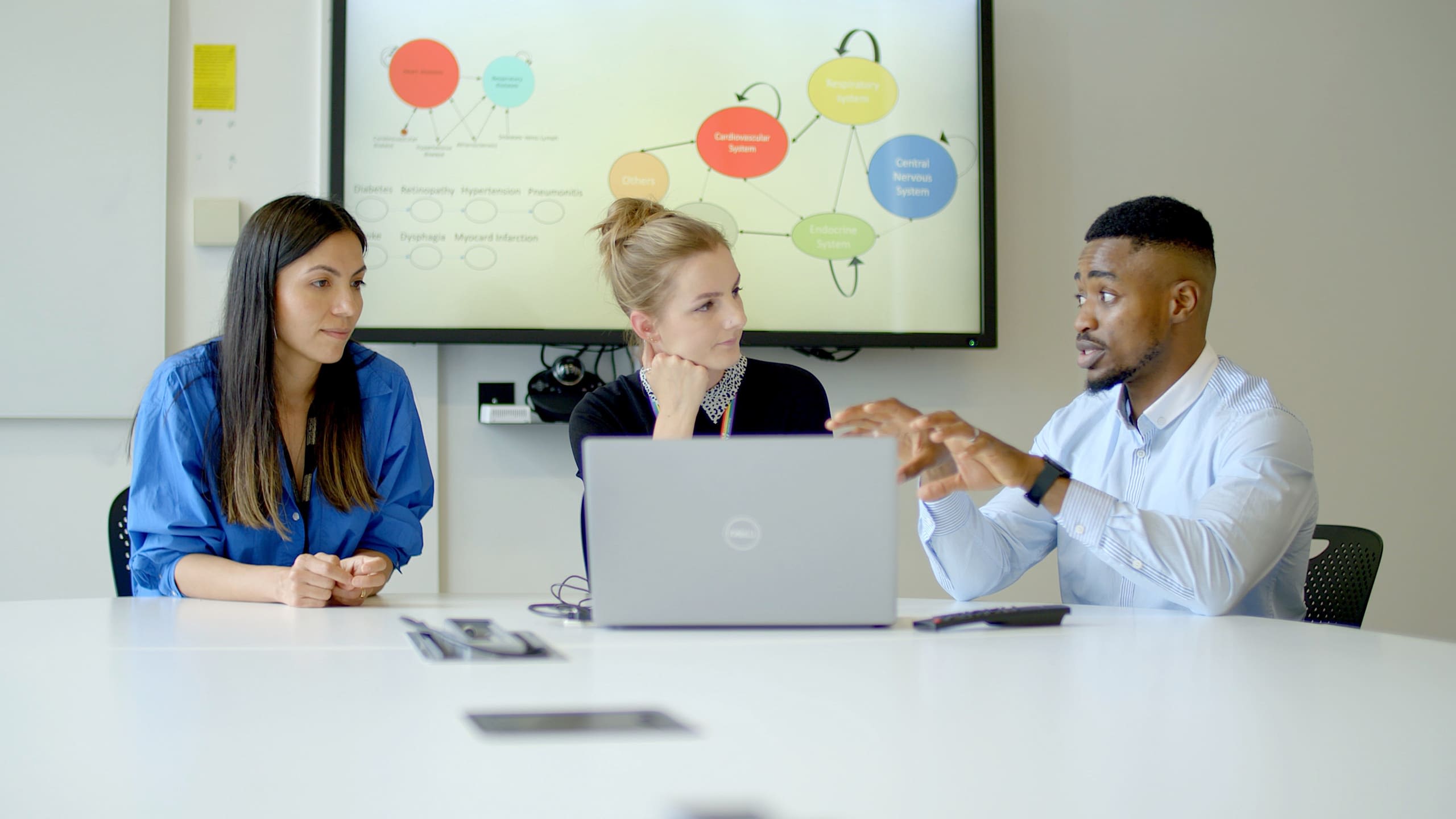
“We hope our research will shape how people with a learning disability and long-term conditions are supported in the UK and beyond – making a real impact by improving their care.”
Dr Satheesh Gangadharan – Consultant Psychiatrist, Leicestershire Partnership NHS Trust
The interactions between MLTC are complex and difficult to predict. Therefore, making the right decisions to treat and support them can be challenging – particularly when there may be several service providers involved.
By analysing the healthcare data of around 34,000 people with learning disabilities who live in England and Wales, the DECODE team are starting to unravel some of these complexities.
Scrutinising such large datasets would ordinarily be a lengthy process. However, by using AI and machine learning technologies the team are speeding the process – and starting to create a detailed picture to support the development of a comprehensive solution for care providers.
They hope that their work will identify:
- the most common MTLC, condition clusters and their trajectories
- the patterns of health conditions alongside other factors – including lifestyle choices and socio-economic conditions
- a better understanding of existing healthcare and care coordination issues
- steps toward better communicating healthcare support and healthcare data

Developing suitable ways to communicate
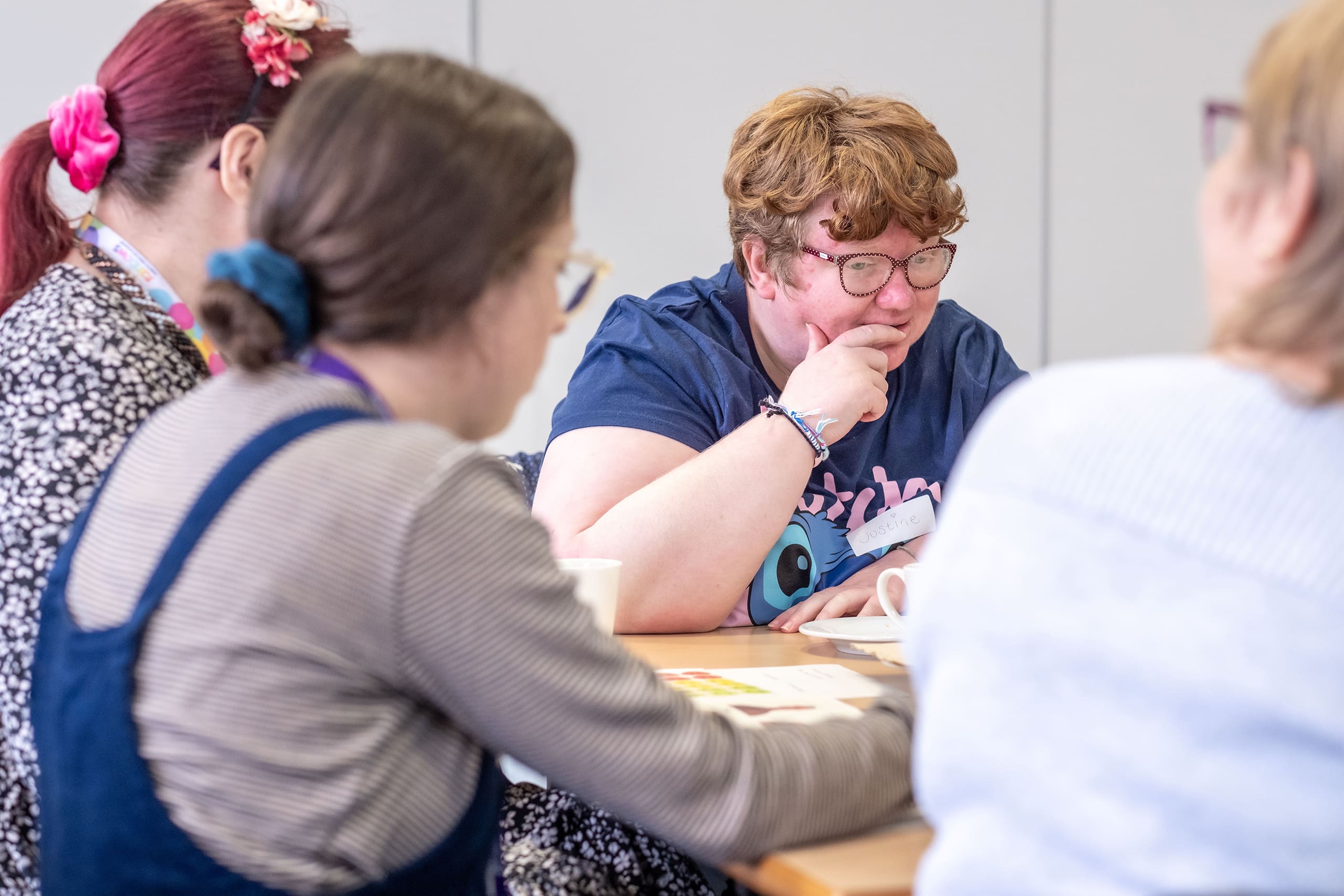
“The PPIE group members are our much-needed critical friends. They tell us what’s working and what’s not. They are really important and helpful.”
Dr Cecilia Landa-Avila – Research Associate
In addition to large scale electronic health data analysis, the team is also collecting and analysing qualitative data through participant interviews and focus groups.
Since receiving ethical approval from the NHS in March 2023, the team has recruited people with learning disabilities, carers, and health and social care professionals to share their knowledge and experiences.
To date, 49 people have joined the team with many regularly attending the group activities that are exploring the most helpful ways to share healthcare information.
They’ve looked at a range of approaches, including the use of storytelling, easy-read formats, graphs, illustrations and infographics – all things that make complex information accessible to everyone.
Healthcare professional participants have been involved in the development of information dashboards that will help them make effective decisions about people’s care.
The evidence gathered by the project – both the AI data and participant input – is helping to identify the most prevalent MLTCs affecting people’s lives. It also underpins recommendations about the most appropriate way forwards – in terms of support and care as well as improved ways to communicate complex information.

The human touch
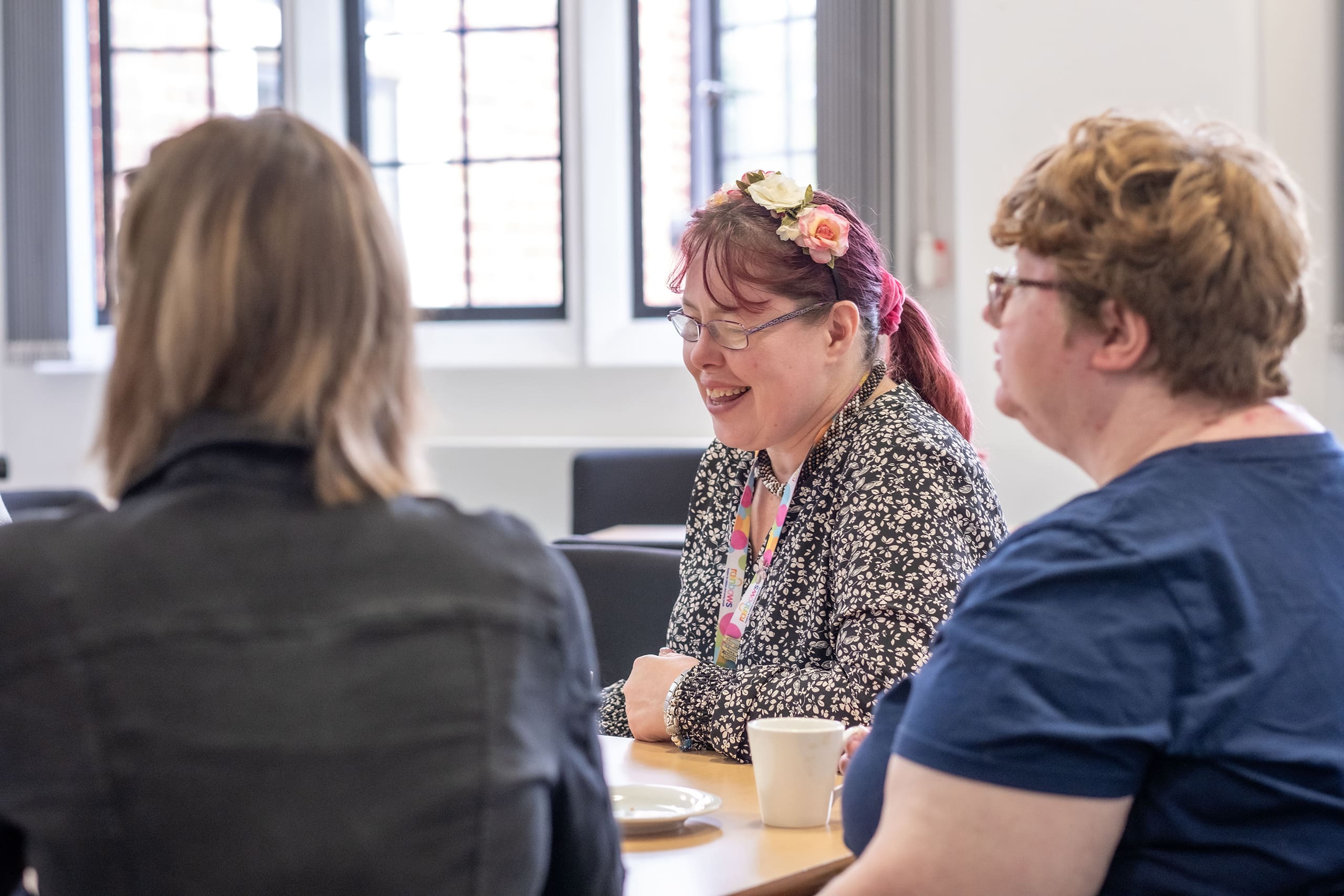
“I like learning new things, being part of a team and knowing that I’m helping to make a difference to people’s lives.”
Heidi Neville – DECODE PPIE Group Member
Both the AI and qualitative data research is guided by PPIE groups, comprising people living with learning disabilities and their carers.
They are active members of the DECODE team, engaged every step of the way – advising, reviewing progress, and supporting participant involvement.
There are about 20 PPIE group members, across four groups. They meet regularly, hosted by the DECODE learning disability nurse and speech and language therapist.
They discuss issues raised by the project teams, provide feedback on plans and outcomes, and offer context to assist in framing participant involvement.
These group activities are a vital part of the research.

“Everyone is important”
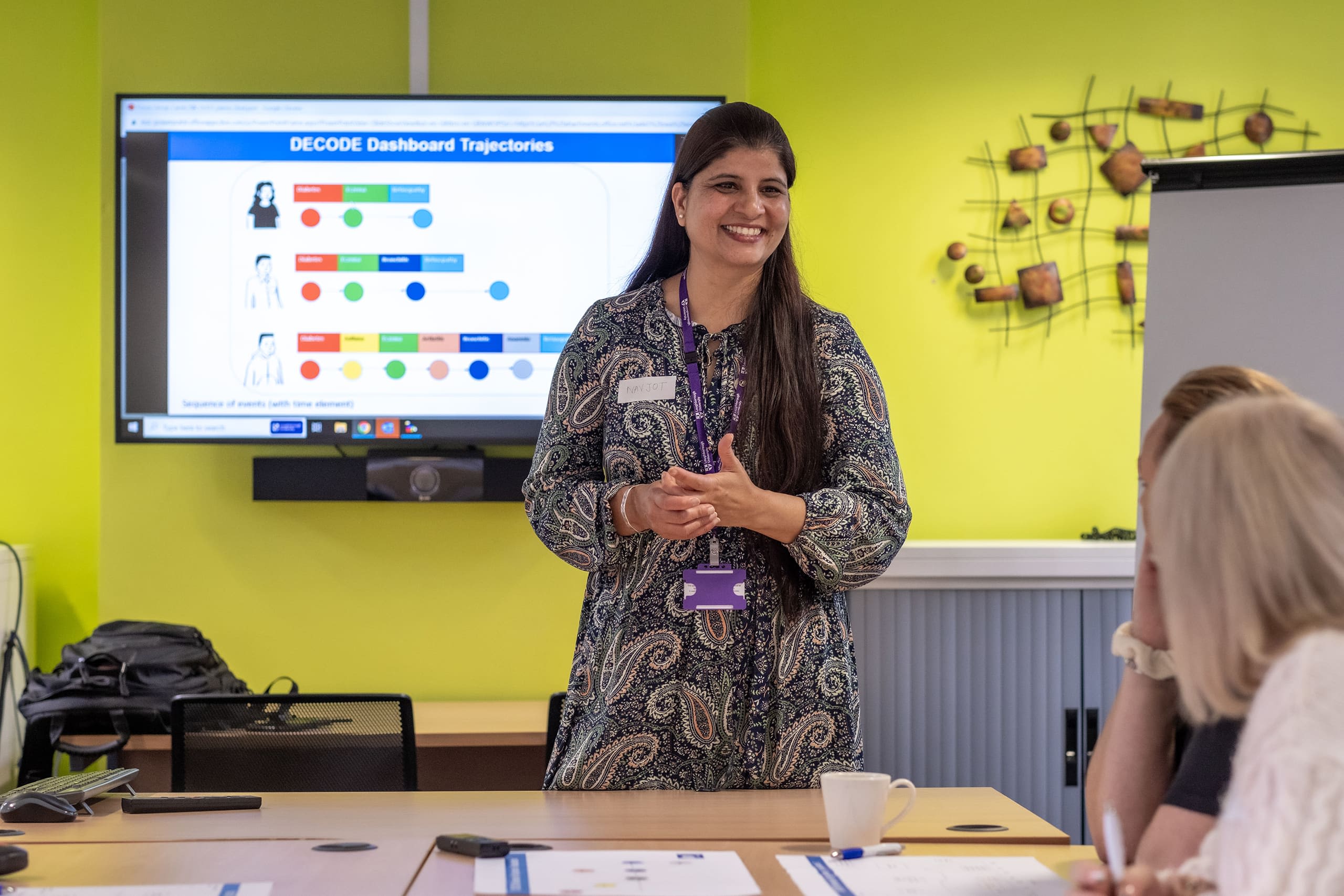
“Being part of DECODE, I’ve learnt that everyone is important. The research will really help in the future. So, it’s very good to be part of the DECODE group.”
Sonal Bhavsar – DECODE Group Member
The project team are keen to encourage the Leicestershire community to get involved in DECODE.
For people with learning disabilities, transport to and from meetings can be arranged. All of the meeting venues are accessible, and everyone’s dietary requirements are double-checked.
A Speech and Language Therapist and Learning Disabilities Nurse are part of the team – providing support in both one-to-one and group sessions – and participants are encouraged to bring a family member, carer or friend along with them.
Black, Asian and minority ethnic (BAME) communities tend to be underrepresented in research projects. People with learning disabilities from these communities may experience “a double jeopardy”.
To help overcome this obstacle to participation, the DECODE team have explored ways to ensure that additional support is provided, where needed, to promote the meaningful inclusion of everyone.

Celebrating and moving forward

In December 2023, the team came together from across the UK to discuss the project outcomes and impacts so far and to share plans for the next phase of work. There was certainly much to talk about and celebrate.
Sarah Rabbittee, DECODE’s Learning Disabilities Nurse, has recently published a research paper in the Journal of Psychosocial Rehabilitation and Mental Health, and several more are due to follow, supporting wide dissemination of the project’s findings. Where possible – reflecting the collaborative nature of the project – the team have included their PPIE participants as co-authors of their work.
The schedule for the coming year is very busy. Data collection and analysis continues – alongside numerous participatory events, including a World Café to bring together together participants, stakeholders and policymakers.
At the half-way point with its final outcomes still to be delivered, DECODE is already collecting awards. The team have received the Leicestershire Partnership (NHS) Trust’s Excellence in Research Award 2023.
One thing the team are particularly happy about is how many of its key stakeholders have joined the project. Being involved in DECODE means that people with learning disabilities are playing a significant role in co-creating new ways to access care that better meet and suit their needs.
What’s more, all of the participants seem to be enjoying the DECODE experience – meeting new people, sharing stories and experiences, developing new skills and gaining confidence while learning about the process and value of ground-breaking research.
DECODE and the NIHR AIM consortium anticipate work in this area will continue long into the future.
“Ethical research is always the way forward. This research has been so carefully planned and is all about the participants – it’s an absolute joy.”
Annie Bannister – DECODE Group Member
If you would like to find out more or get involved in DECODE, please contact the research team.
Tel: 0116 295 4769
Email: decode@mailbox.lboro.ac.uk
Web: decode-project.org
Share this page
